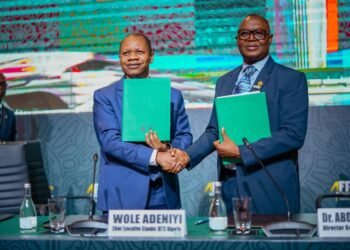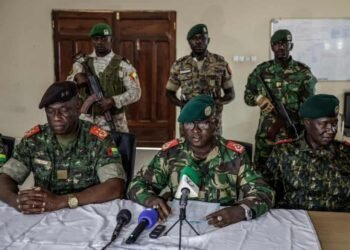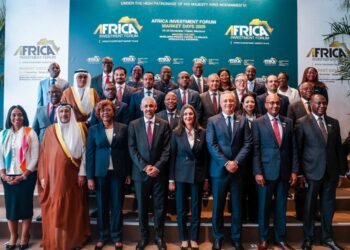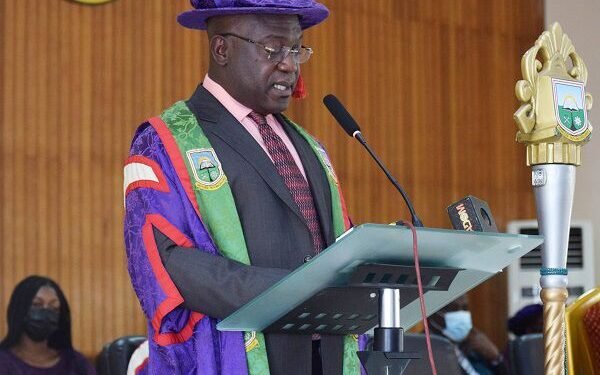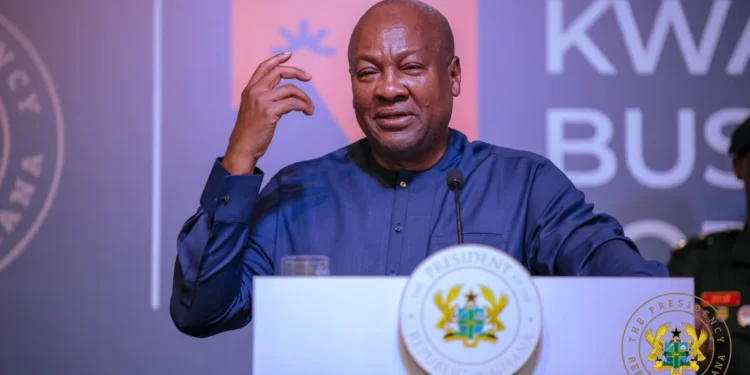South Sudan’s quest for lasting peace hit a significant snag as opposition groups demanded the removal of a newly passed bill allowing detention without an arrest warrant. This demand is now a key condition for signing a proposed peace agreement.
Kenya has been at the forefront of hosting high-level peace talks since May, bringing together government representatives and rebel opposition groups excluded from the 2018 agreement that ended a devastating five-year civil war.
This conflict claimed around 400,000 lives and displaced millions. Despite the agreement, violence has persisted in the nation of nine million.
Pagan Amum Okiech, a prominent figure negotiating for the South Sudan Opposition Movement Alliance, voiced strong objections. He stated it would be “meaningless to sign any agreement if the draconian National Security Act is signed into law by the president.”
This Act, passed by parliament last week, awaits President Salva Kiir’s approval within 30 days to become law. The timing is critical as the country prepares for its first-ever election on December 22.
“This law violates the fundamental rights and freedoms of South Sudanese citizens, it eliminates civic and political space,” Amum asserted.
“There can be no peace or democracy under such a law.”
Edmund Yakani, executive director of the Community Empowerment for Progress Organization, also attended the talks. His non-profit organization engages university students and recent graduates in civic activities.
Yakani criticized the security bill, claiming it has “created a negative spirit for the negotiations.”
Human Rights Watch has also weighed in, urging President Kiir to reject the bill. The organization argues that the legislation will further erode human rights and bolster national security agencies with a history of rights abuses.
The peace talks, dubbed Tumaini — Swahili for hope — have produced a draft agreement.
This proposal suggests extending the transitional period and delaying the upcoming election to finalize the country’s constitution, electoral laws, constituency borders, and a unified security force as outlined in the 2018 peace talks.
Several Western envoys have also recommended postponing the election to “guarantee a free and fair election.” However, President Kiir remains steadfast in holding the election in December, dismissing the envoys’ suggestions.
Talks To End Conflict Between Sudan’s Military And RSF
In another regional development, Ethiopian Prime Minister Abiy Ahmed met with Sudan’s armed forces chief, General Abdel Fattah al-Burhan, as international efforts intensify to end the conflict between Sudan’s military and the paramilitary Rapid Support Forces (RSF).
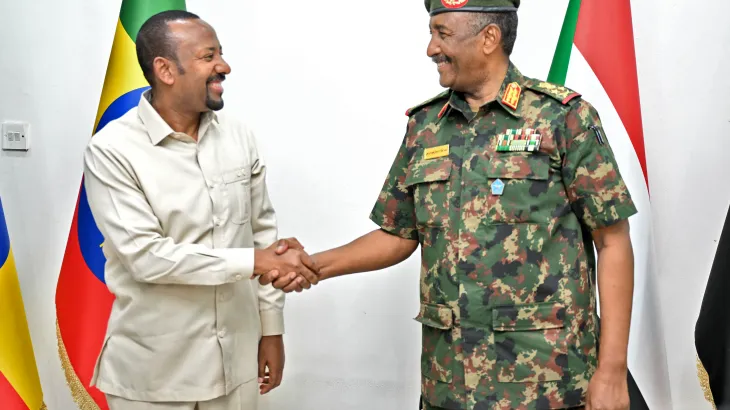
Sudan has been embroiled in war since April 2023, when clashes erupted between forces loyal to al-Burhan and the RSF, led by his former deputy, Mohamed Hamdan Dagalo, known as Hemedti.
Ahmed’s visit to Port Sudan, where the army-aligned government is based, marks the highest-level state visit since the conflict began.
The ongoing war has threatened regional stability, displaced millions, and created one of the world’s largest humanitarian crises.
The Sudan Sovereign Council described the meeting as “a testament to the depth of relations” between Ethiopia and Sudan.
According to Ahmed’s press secretary, the Ethiopian leader’s visit aimed to “achieve peace and security” in Sudan. However, the specifics of Ahmed’s proposals remain unclear.
In a closed-door session, al-Burhan briefed Ahmed on what he described as the “crimes and atrocities” committed by the RSF during its “rebellion against the state and its institutions.”
Both sides in the Sudanese conflict have faced accusations of war crimes from United Nations officials and international rights groups.
As South Sudan grapples with its internal security bill controversy, the broader region continues to face instability and humanitarian challenges.
The outcomes of these high-stakes negotiations and diplomatic efforts remain uncertain, but the quest for peace and stability persists amid formidable obstacles.
READ ALSO: Parliament To Investigate Excessive Force By Immigration Officers At Aflao Border






